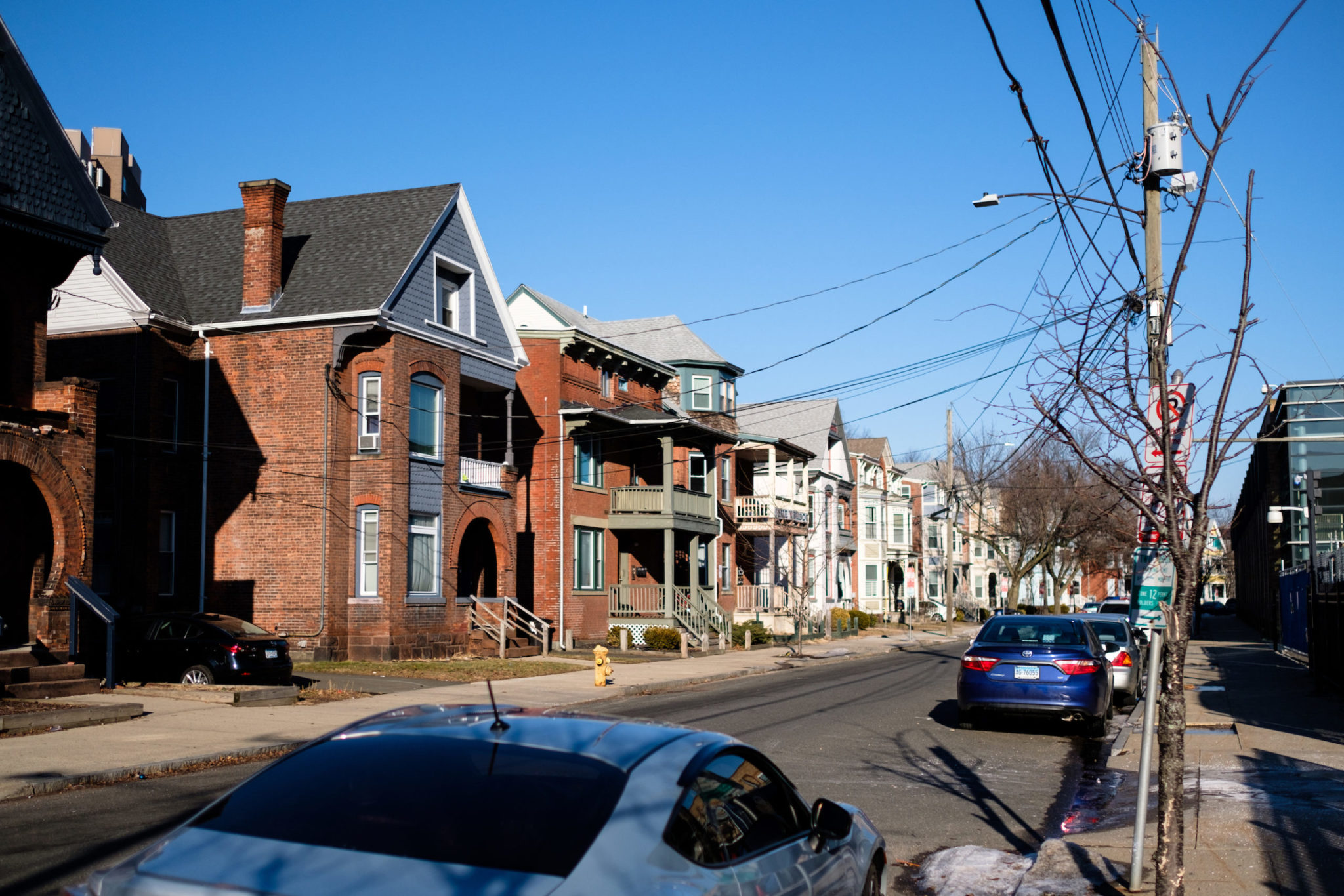New Haven recognizes tenants’ right to unionize and collectively bargain
Years in the making and championed by activists, Mayor Justin Elicker signed an ordinance that formally recognizes tenants’ right to unionize and organize around grievances on Tuesday.

Yale Daily News
Mayor Justin Elicker stood alongside a mix of city officials, alders and tenants’ rights activists on Tuesday, signing an ordinance recognizing tenants’ right to unionize and supporting their power to collectively bargain with the support of city government.
The ordinance will take effect in the midst of an affordable housing crisis and tenants contending with “bad-acting mega-landlords,” as written in a city press release. Currently, waitlists for Section 8 vouchers and public housing number tens of thousands, and tenants in affordable housing and apartment complexes have raised the alarm over poor living conditions. Elicker, who has long advocated for the ordinance, initially submitted it to the Board of Alders for review in June, and it has since passed the chamber unanimously.
The brief text clearly defines and approves a tenants’ union, lists the responsibilities of the existing Fair Rent Commission — the body in charge of determining if landlords are charging excessive rents, gives tenants a role in the Commission’s investigations and provides guidelines for assessing their complaints.
“Tenants, individually, have power, but as a group they have way more power,” Elicker said during a June 9 press conference. “Facilitating that group, communicating with each other and having some sort of legal definition and legal authority can dramatically improve not only the situation for those tenants, but for other multi-unit properties across the city.”
In the ordinance, tenants’ unions are defined as “an organization whose membership is comprised of the tenants living in a housing accommodation … and that has been created by agreement of a majority of the tenants listen as lessees within the housing accommodation.” Tenants have long organized unions in New Haven, but Tuesday’s ordinance formally recognizes them.
According to a city press release, the ordinance is “believed to be” the first of its kind in the state of Connecticut, as state law neglects to define or elaborate upon tenants’ unions and their rights. Nonetheless, discussions over tenants’ unions have picked up steam throughout the state. The tenant organization Connecticut Tenants Union, or CTTU, has used social media to share stories of tenants organizing in cities like Bloomfield and nearby Hamden. The Central Connecticut chapter of the Democratic Socialists of America, or DSA, who have long advocated for housing justice in cities like New Haven, applauded today’s event as a sign of progress in a tweet. CTTU organizers joined Elicker and other activists at City Hall for the ordinance signing.
Since the start of the pandemic, city rents have skyrocketed. As of April 2022, rents have seen a year-over-year rise of 23 percent, and vacancies have grown more slim at 2.5 percent. Unionized tenants, under the new ordinance, can become involved in the Fair Rent Commission’s determinations on whether landlords should lower rents for any tenant reporting excessive charges. The ordinance additionally lists criteria the Commission must consider as they deliberate, which includes the quality of sanitation and utilities, whether repairs are adequate, health and safety compliances, landlord expenses and tenant incomes.
Tenant unions have sprung up across the city over the past few years, representing different properties. One union, representing the Quinnipiac Gardens apartment complex, protested mismanagement and poor conditions outside of the property and City Hall last year.
Standing beside Elicker in June, Quinnipiac Gardens union representative Jackie Swell-Freelove, who has lived in the complex for 18 years, described that the union was formed because of “broken promises” amid these conditions.
“I just think it’s sad that people have to live in bad conditions, but yet they want the rent,” Swell-Freelove said. “If you don’t pay the rent, the first thing they say is — they send a letter out, ‘We’re gonna evict you.’ For what? You didn’t come in here and do no work in none of the apartments.”
Fair Rent Commission Executive Director Wildaliz Bermudez, at the June 9 conference, described that the Commission will also host a public forum for tenants, unions and landlords to “discuss the general conditions and to help create a record.” Landlords will, according to Bermudez, have due process as complaints are processed.
In addition to Pike, other landlords and housing management companies faced increasing accusations of health and safety violations, among other grievances.
“One of the most common complaints I hear around the city is around housing issues and landlords that don’t take care of their properties,” Elicker said at the June 9 event. “Frankly, there’s a number of very, very large landowners, property owners that are frequent flyers when it comes to violations in the city.”
On Oct. 18, the Fair Rent Commission will ultimately review the ordinance’s proposals and regulations.
Interested in getting more news about New Haven? Join our newsletter!







